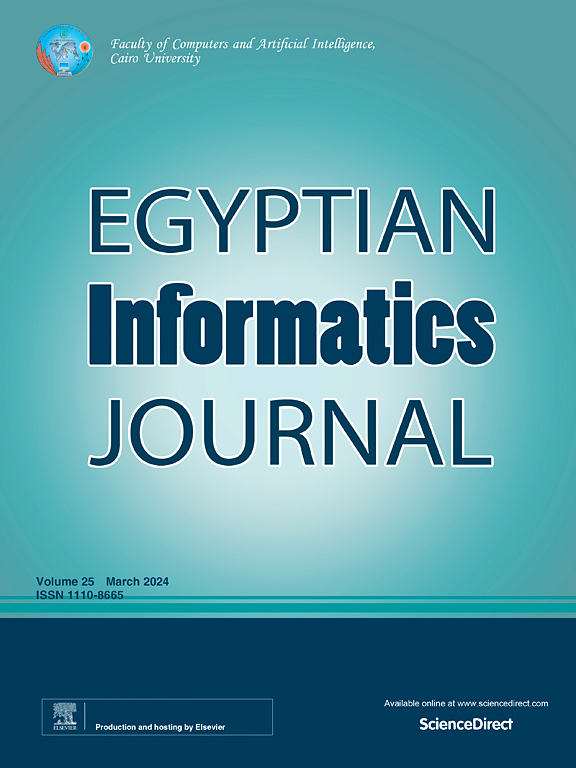Design and hardware implementation of LED block cipher for vehicles keyless entry systems
IF 4.3
3区 计算机科学
Q1 COMPUTER SCIENCE, ARTIFICIAL INTELLIGENCE
引用次数: 0
Abstract
Security is paramount in vehicle keyless entry systems, as they are increasingly targeted by various attacks, including relay attacks, theft, and espionage. Keyless entry systems are particularly vulnerable to relay attacks, where attackers intercept and amplify the signal from the key fob, granting unauthorized access to the vehicle. This compromises the integrity of the system, emphasizing the need for robust encryption mechanisms to prevent unauthorized access and safeguard sensitive vehicle data. In this work, we propose an optimized hardware design for the Light Encryption Device (LED) cipher, aimed at enhancing both the security and efficiency of keyless entry systems. The proposed security system is evaluated using security metrics such as NPCR, UACI, entropy, and correlation analysis, demonstrating its robust protection against potential attacks. The obtained results show that the proposed hardware implementation delivers higher efficiency and enhanced security compared to existing designs, making it a promising solution for securing keyless vehicle entry systems. The real-world test scenarios assess the performance of the proposed hardware system, demonstrating its effectiveness in terms of execution time, power consumption, and battery drain time across different platforms, including Dual Core ARM Cortex-A9 and Zynq XC7Z020. The results reveal that the proposed designs offer improved efficiency and security, positioning them as a viable solution for safeguarding keyless entry systems against unauthorized access. This work underscores the potential of lightweight cryptography to tackle both security and performance challenges in modern automotive systems, ensuring the safety and integrity of vehicle access control.
车辆无钥匙进入系统LED分组密码的设计与硬件实现
安全性在车辆无钥匙进入系统中至关重要,因为它们越来越多地成为各种攻击的目标,包括中继攻击、盗窃和间谍活动。无钥匙进入系统特别容易受到中继攻击,攻击者拦截并放大来自钥匙扣的信号,允许未经授权进入车辆。这损害了系统的完整性,强调需要强大的加密机制来防止未经授权的访问和保护敏感的车辆数据。在这项工作中,我们提出了一种优化的光加密设备(LED)密码的硬件设计,旨在提高无钥匙进入系统的安全性和效率。使用NPCR、UACI、熵和相关分析等安全指标对所提出的安全系统进行了评估,证明了其对潜在攻击的强大保护。结果表明,与现有设计相比,所提出的硬件实现提供了更高的效率和增强的安全性,使其成为无钥匙车辆进入系统安全的有前途的解决方案。实际测试场景评估了所提出的硬件系统的性能,展示了其在不同平台(包括双核ARM Cortex-A9和Zynq XC7Z020)上的执行时间、功耗和电池消耗时间方面的有效性。结果表明,提出的设计提供了更高的效率和安全性,将其定位为保护无钥匙进入系统免受未经授权访问的可行解决方案。这项工作强调了轻量级加密技术在解决现代汽车系统安全和性能挑战方面的潜力,确保了车辆访问控制的安全性和完整性。
本文章由计算机程序翻译,如有差异,请以英文原文为准。
求助全文
约1分钟内获得全文
求助全文
来源期刊

Egyptian Informatics Journal
Decision Sciences-Management Science and Operations Research
CiteScore
11.10
自引率
1.90%
发文量
59
审稿时长
110 days
期刊介绍:
The Egyptian Informatics Journal is published by the Faculty of Computers and Artificial Intelligence, Cairo University. This Journal provides a forum for the state-of-the-art research and development in the fields of computing, including computer sciences, information technologies, information systems, operations research and decision support. Innovative and not-previously-published work in subjects covered by the Journal is encouraged to be submitted, whether from academic, research or commercial sources.
 求助内容:
求助内容: 应助结果提醒方式:
应助结果提醒方式:


